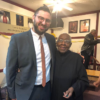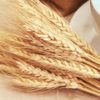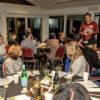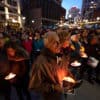By Rabbi Nate DeGroot In Parashat Noach, God promised to never destroy the earth again (Gen 8.21). But that says nothing of our precarious power as humans to jeopardize our own future1. What could Noah have been thinking, we wonder2, as he built his ark, watching the people go by, knowing full-well God’s intent to wipe out land and flesh alike, and yet never reaching out to his neighbors or peers. No warning of what God has told him. No encouraging them to build their own arks. Or work together. No impetus to petition God. We’re told: נֹ֗חַ אִ֥ישׁ צַדִּ֛יק תָּמִ֥ים הָיָ֖ה בְּדֹֽרֹתָ֑יו Noah was a righteous person, blameless in his generation. -Gen 6.9 A righteous person in his generation? Why does the text feel the need to qualify Noah’s righteousness? Couldn’t it have just identified Noah as righteous, and left it at that? Why “in his generation”? According to the rabbis (Sanhedrin 108a, Bereishit Rabbah 30:9), Noah was righteous, but only so much so. And certainly in another generation, he would not have even made the Top 10. Noah was not righteous like Abraham, who argued with God to spare the residents of Sdom and Gmorrah. And he definitely […]















